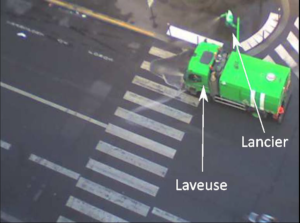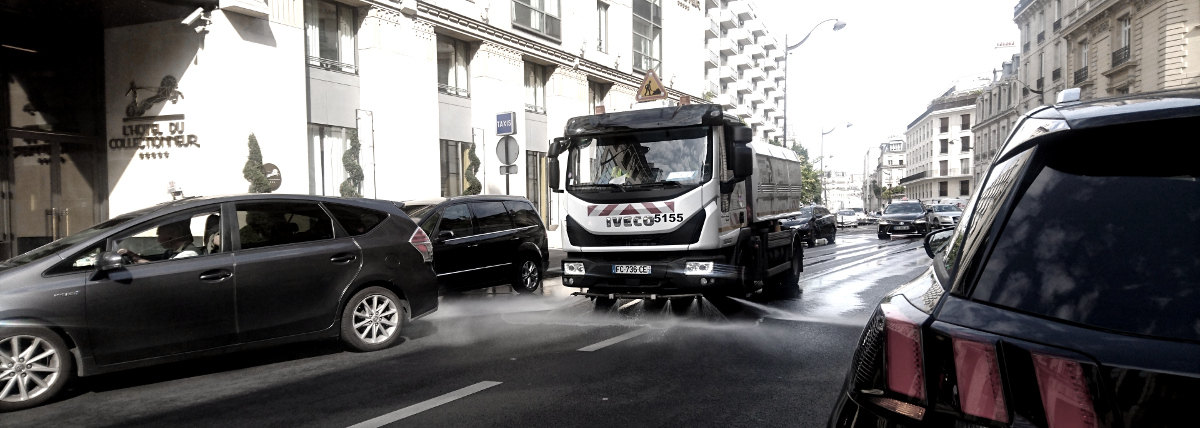Context
The Technical Department of Water and Sanitation (STEA) of the Directorate of Cleanliness and Water (DPE) has been experimenting with the use of non-potable water for the cooling of urban space during a heat wave since 2013. These watering campaigns, managed by the Cleanliness city service, have shown that the method can lower the temperature felt by pedestrians from 2 to 3 degrees Celsius in the afternoon.
As a continuation of this work, as part of the European Cool and Low Noise Asphalt project, an experiment is planned for watering three new sites in Paris, Rue de Courcelles, rue Lecourbe and rue Frémicourt. The aim is to test the effectiveness of watering on innovative, clearer or porous coatings, which can initially increase the refreshing effects felt by pedestrians compared to a traditional pavement surface.
Goal
Watering the sidewalks and pavement of the site is retained in order to maximize the effects felt. The goal is to moisten a large area of the street by the STEA.
Experimental phases
The experiment will take place during most of the summer (between early June and September) as soon as the trigger threshold is reached. This threshold corresponds to more flexible criteria than those of a Paris heatwave alert, in order to compensate for the possible absence of heatwaves during the summer.
| Minimum temperature
(3-day average) |
Maximum temperature
(3-day average) |
wind | Cloud cover |
| 16°C | 25°C | <10 km/h | No clouds |
Table 1: Watering Trigger Criteria
A weather watch is provided by the STEA throughout the summer to ensure the achievement of these criteria. If a watering is to take place, the STPP is notified 3 days in advance.
Watering method
The watering of the Rue de Courcelles is done by a pavement cleaner (ENC) as well as a launcher for the sidewalk. The frontal watering heads and side beak are used on the ENC to cover a wide area.

Figure 1: ENC and Lancer
Watering schedules and frequency
The protocol described above takes place at fixed intervals:
- In the morning: from 7 a.m. to 11:30 a.m., with one pass every 1:30 a.m. (or 4 passes)
- Afternoon: 2 p.m. to 6:30 p.m., with a pass every 30 minutes (i.e. 10 passes)








